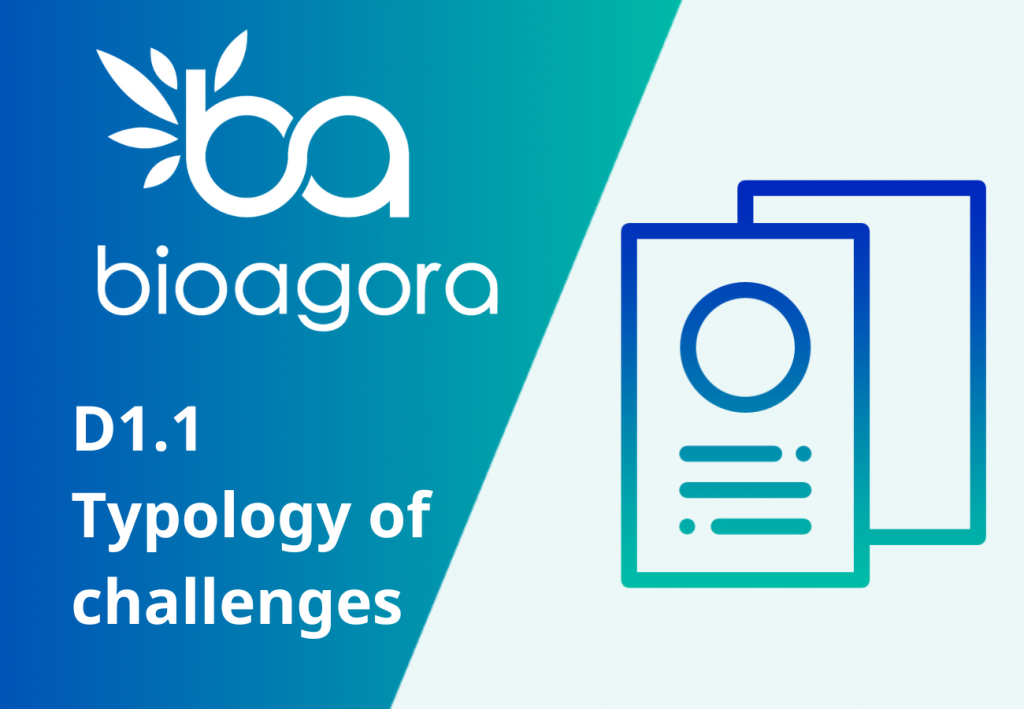The BioAgora consortium has conducted an evidence-based analysis of the challenges that may hinder the implementation of the EU Biodiversity Strategy for 2030. Eight key challenges categories were identified by our team and reported in BioAgora’s Typology of challenges (Deliverable D1.1).
The EU Biodiversity Strategy for 2030
The EU’s Biodiversity Strategy for 2030 (BDS 2030), launched on 20 May 2020, aims to address the five main drivers of biodiversity loss (changes in land and sea use, overexploitation, climate change, pollution, and invasive alien species) and set up an enhanced governance framework. To meet the high expectations towards this new strategy, it is important to learn from previous errors and understand the obstacles and challenges which might limit the actual implementation of the strategy.
BioAgora’s research
BioAgora’s researchers reviewed and evaluated a comprehensive number of scientific articles, scientific reports, expert knowledge of scientists working in the field of biodiversity conservation and management, and the expertise of policy- and decision-makers working at national and EU levels.
Eight areas of concern for the BDS 2030
The BioAgora researchers identified eight key challenges categories that may hinder the implementation of the BDS 2030:
- Availability of knowledge (e.g., lack of sufficient data or robust scientific knowledge, ineffective communication);
- Funding (e.g., insufficiency and inadequacy of financial instruments allocated to biodiversity conservation goals);
- Horizontal policy coherence (e.g., lack of coherence between the policy objectives, instruments, and actions of the BDS 2023 and other sectoral (EU) policies);
- Management effectiveness (e.g., challenges affecting the implementation of area-based conservation measures);
- Systematic spatial planning (e.g., lack of systematic conservation planning with transparent spatial priorities and clear conservation targets);
- Vertical policy implementation (e.g., challenges related to the incorporation of EU strategic targets and directives into the national and regional laws of EU Member States);
- Engagement (e.g., difficulties and contradictions related to stakeholder participation and public engagement);
- Challenges related to the dominant economic and political system (e.g., limitations to public interest, short-sighted political vision for biodiversity).
BioAgora and the Science Service for Biodiversity
BioAgora will develop the Science Service for Biodiversity (SSBD) which will orchestrate science-policy interactions within the EU and link scientific knowledge more efficiently with policy making and implementation in order to ratchet up the BDS 2030. Our evidence-based analysis therefore fulfils a preliminary requirement with an in-depth understanding of the challenges and barriers that might hinder the implementation of the Strategy.
Thanks to the SSBD, biodiversity-related knowledge will be made more accessible. As a result, the effectiveness of management actions will be improved, and biodiversity aspects better integrated into spatial planning and sectoral policies. The SSBD will also make decision-making processes more open and accessible for a wide range of actors, therefore contributing to better engagement processes and more harmonized decision-making across different scales (from the local through national to the EU-level). Nevertheless, there are also some deeply rooted challenges, associated with our growth-oriented political and economic structures prioritising short-term benefits, which have a strong impact on how the BDS 2030 gets implemented. Improving the availability of knowledge can help increase the awareness and motivation of different actors, but it will not be enough to systematically change the political and economic structures and processes.
This research was conducted within BioAgora’s Work Package 1 “Underpinning the Biodiversity Strategy for 2030 (BDS2030) – Case Study Hub”.
For further information about the analysis and its results, we invite you to read the full report “D1.1. Typology of challenges that hinder the implementation of BDS 2030”.
